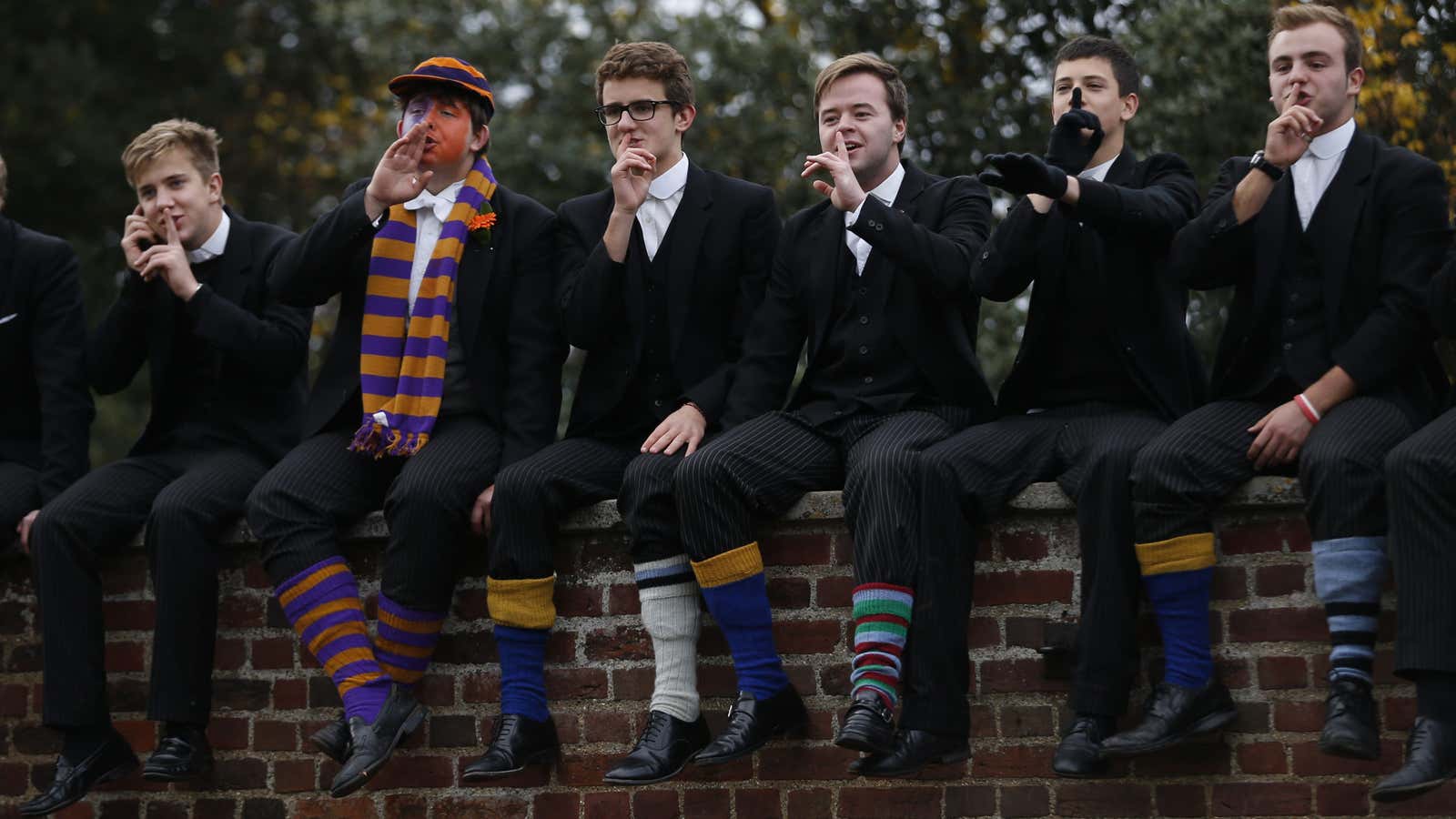Just 7% of the UK population attends a private high school, but these students get the top jobs in the country.
Over half of the country’s journalists, doctors, and barristers were educated at private schools in 2016, according to a recent report by the government’s Social Mobility Commission. The report notes little change in opening access to students from state-funded schools within these professions over the last three decades. In some cases, such as medicine, the profession has drawn even more professionals from exclusive private schools, with the percentage of those privately educated jumping from 51% in 1987 to 61% in 2016. In contrast, chief executives had a dramatic drop in the number of privately educated within the profession, falling from 70% in 1987 to 34% in 2016.
Private schools are almost exclusively affordable to the rich and well off in Britain; the cost of a private day school averages £13,341 a year ($17,264). Those who send their children to private boarding schools can expect to pay three times as much. According to the Financial Times, a child who started private school at age five in 2015, expecting to graduate in 2028, could reach as much as £286,000, too much for parents earning the UK average salary of £27,600 a year.
While bursaries and scholarships exists, many aren’t exclusively for disadvantaged, poorer students. The government has asked private schools to offer more funded places to children whose families can’t afford to pay fees. State schools are free.
The proportion of British MPs privately educated has also been declining, albeit slowly. In 1979, nearly half (49%) or British MPs from the three biggest British parties—Liberal Democrat, Labour, and Conservative—were privately educated, according to recent analysis by the Sutton Trust. The proportion of privately educated MPs from these three parties dropped to 31% in the 2017 election. When factoring in the smaller parties, 29% of MPs were educated at private schools in 2017. Though the proportion of privately educated MPs is at a record low, the Social Mobility Commission notes that, at the current rate, it would take nearly sixty years before the makeup of British MPs matches the general population.
The commission partly blames the rise of internships for keeping the less well-off from accessing these jobs. In the UK, work placements and internships have increased by 49% since 2010. The report notes that at least 31% of these internships are not paid. This ends up barring poorer people who don’t know the right people or don’t have enough financial support to take an unpaid internship. The report also blames the reliance on formal qualifications in some professions.
The commission argued that the government hasn’t done enough to close the gap between “Britain’s haves and have-nots.” The gap is particularly stark for young people in high schools; with the current rate of progress, it would take 120 years before disadvantaged young people in state schools are as likely as their better-off counterparts to achieve equivalent qualifications once leaving school at age 18.




